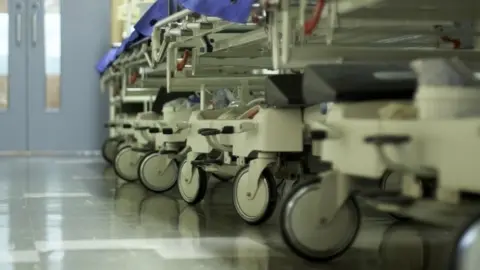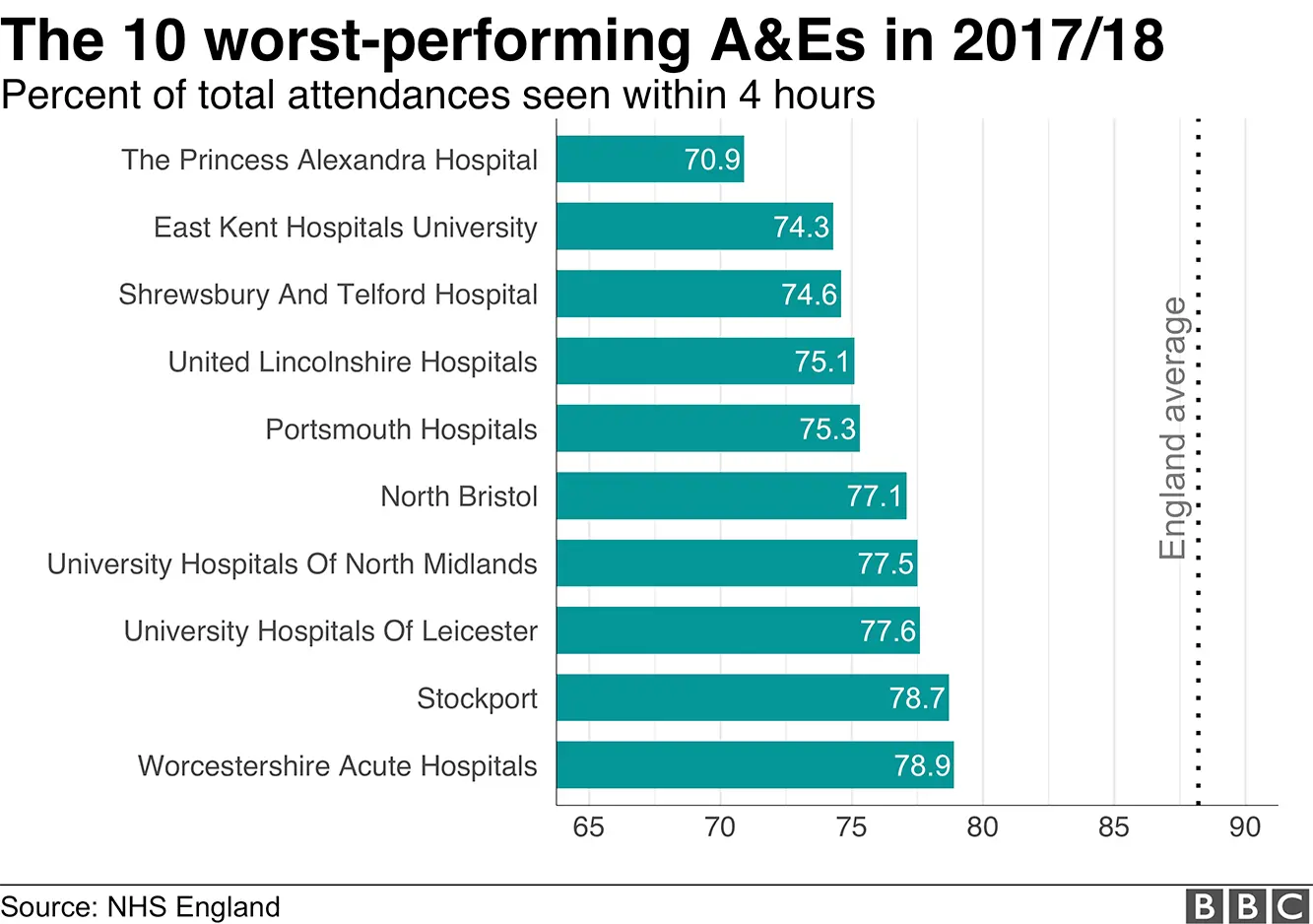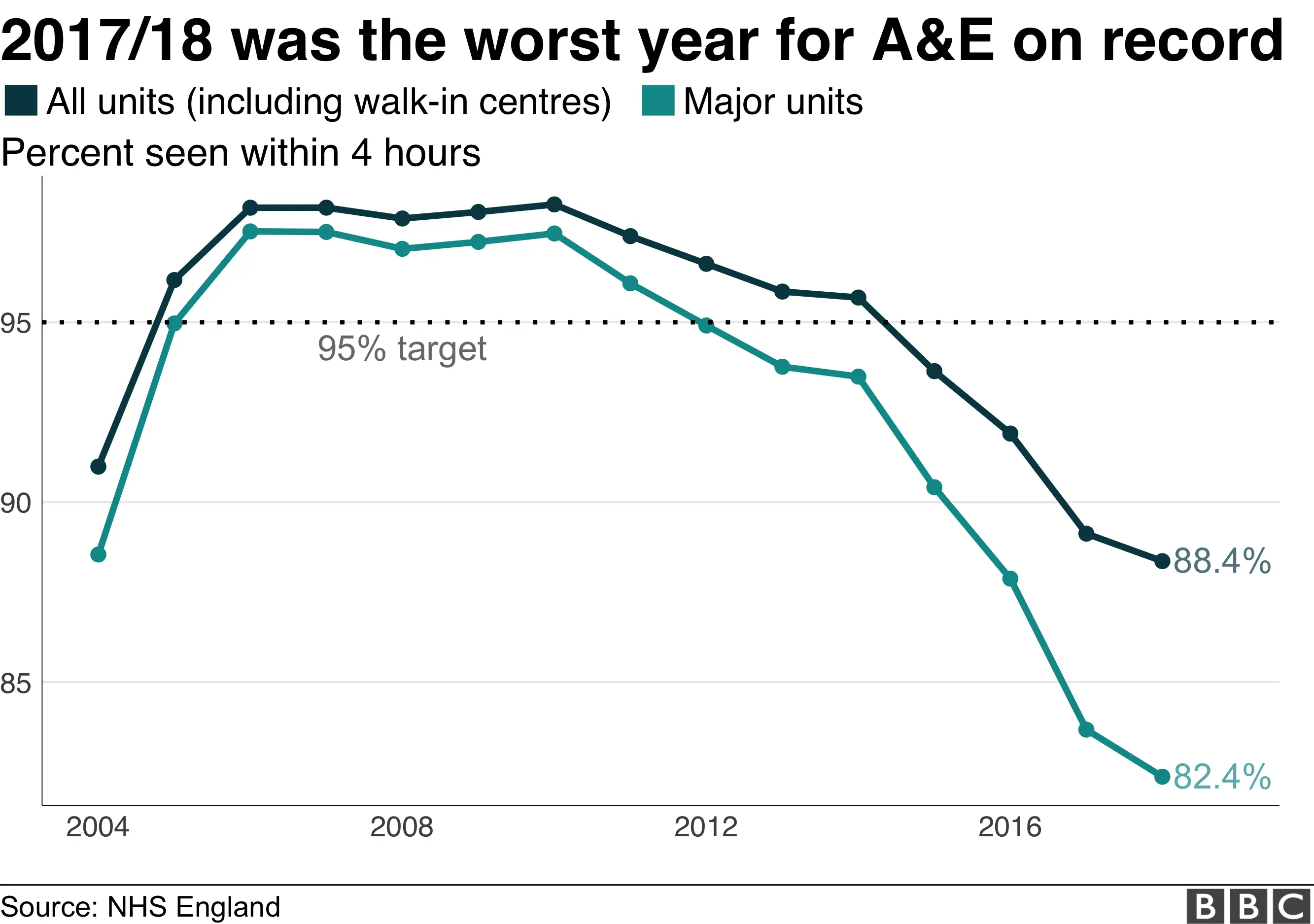The 10 worst A&Es for waits revealed
 Getty Images
Getty ImagesA&E waiting times have reached their highest levels in England - as a BBC analysis indentifies the services with the worst individual waits.
Hospitals are meant to see 95% of patients in four hours.
But the difficult winter means the NHS has recorded its worst-ever annual performance - at 88.4% - since records began in 2004, NHS England data showed.
The single worst service was Princess Alexandra Hospital in Essex, which only saw 70.9% in four hours during 2017-18.
This was followed by East Kent Hospitals on 74.3%.


The worst performance has been seen at the major units, once NHS trusts exclude the minor injury units and walk-in centres they run.
Yearly figures are not in for the rest of the UK yet, although during winter the overall performance was worse in Northern Ireland and Wales.
Scotland's A&Es have been at a similar level to England's.
Ian Dalton, head of NHS Improvement, which regulates the health service, said hospitals were facing a "mammoth" task coping with rising numbers of patients, particularly the sickest that need to be admitted on to wards.
But he conceded: "Nobody working in the NHS will be happy with the effect this has had on how quickly we have seen and treated patients."
If you can't see the NHS Tracker, click or tap here.

But Dr Nick Scriven, president of the Society for Acute Medicine, said it showed the NHS was facing an "eternal winter" and warned it would now be difficult to catch up on the planned operations that were cancelled during the past few months.
"The fear is patients will feel the effects of this year's winter for weeks and months to come so there is a desperate need for much earlier winter planning if we are to avoid a repeat of this nightmare."
Phillippa Hentsch, of NHS Providers, which represents hospital bosses, said the figures "underlined the urgency of the problems facing the NHS".
She said there were simply not enough "beds and staff".
A Department of Health and Social Care spokesman praised the "dedication of staff", especially over the winter which saw bad weather and high levels of flu.
He pointed out the prime minister had committed to coming up with a long-term funding plan - widely assumed to be a 10-year settlement - later this year which would help the health service prepare better for pressures in coming years.
Data journalism by Tom Calver and Christine Jeavans

